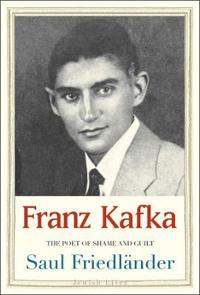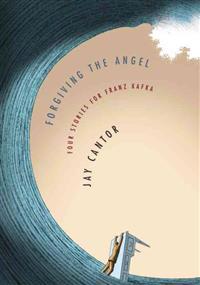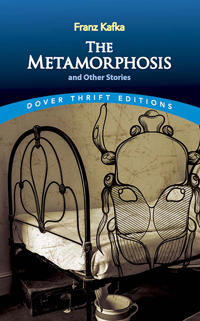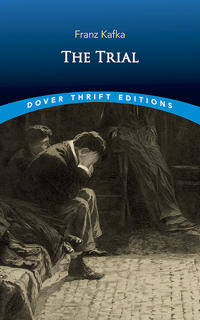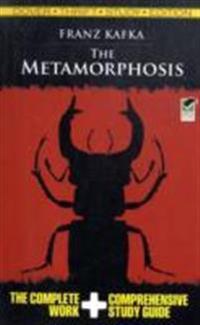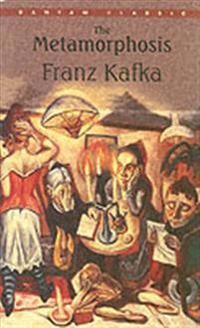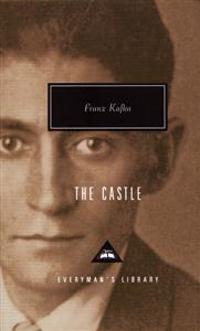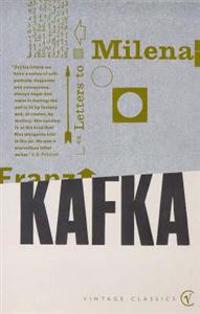The Mystical Life of Franz Kafka (Inbunden)
avJune O. Leavitt
ISBN: 9780199827831 - UTGIVEN: 2011-11-15Global Justice and Transnational Politics (Häftad)
avFranz Kafka
ISBN: 9780262541336 - UTGIVEN: 200206If globalization is to be a benefit and not a burden to humankind, it must be governed by global institutions that are perceived by all people to be democratic and just. But before we can create such institutions, we must imagine them, and that requires a rethinking and extension of normative politi[...]
Franz Kafka (Inbunden)
avSaul Friedlander
ISBN: 9780300136616 - UTGIVEN: 201305Franz Kafka was the poet of his own disorder. Throughout his life he struggled with a pervasive sense of shame and guilt that left traces in his daily existence - in his many letters, extensive diaries, and especially in his fiction. This stimulating book investigates some of the sources of Kafka's [...]
Franz Kafka
ISBN: 9780300219722 - UTGIVEN: 2016-03A highly original and engaging appraisal of Kafka's life, work, legacy, and thought Franz Kafka was the poet of his own disorder. Throughout his life he struggled with a pervasive sense of shame and guilt that left traces in his daily existence-in his many letters, in his extensive diaries, and espe[...]
Franz Kafka (Häftad)
avMax Brod
ISBN: 9780306806704 - UTGIVEN: 199508Max Brod, a successful novelist, was a boyhood companion of Kafka's and remained closely tied to him until Kafka's death in 1924. He was undoubtedly the one man whom Kafka trusted more than any other, and it is to Brod, as his literary executor and editor, that we are indebted for rescuing and brin[...]
Franz Kafka Stories 1904-1924 (Storpocket)
ISBN: 9780349106595 - UTGIVEN: 1990-12From the expressionism of his early prose pieces to his very last work, JOSEPHINE, these stories cover the full range of Kafka's writing career, culminating in THE METAMORPHOSIS, which Elias Canetti described as "one of the few great and perfect works of poetic imagination written during this centur[...]
The Nightmare of Reason: A Life of Franz Kafka (Häftad)
avErnst Pawel
ISBN: 9780374523350 - UTGIVEN: 1997-05A comprehensive and interpretative biography of Franz Kafka that is both a monumental work of scholarship and a vivid, lively evocation of Kafka's world.
[...]Forgiving the Angel: Four Stories for Franz Kafka (Inbunden)
avJay Cantor
ISBN: 9780385350341 - UTGIVEN: 2014-01From one of our most thought-provoking and admired writers, a brilliant, beautiful, and sometimes heartbreaking group of stories based on a circle of real people who are held together by love of their friend Franz Kafka.
The sequence opens with Max Brod, Kafka's friend and literary executor, te[...]Franz Kafka, the Jewish Patient
ISBN: 9780415913911 - UTGIVEN: 1995-11This is the first book about Kafka that uses the writer's medical records. Gillman explores the relation of the body to cultural myths, and brings a unique and fascinating perspective to Kafka's life and writings.[...]
The Metamorphosis (Häftad)
avFranz Kafka
ISBN: 9780486290300 - UTGIVEN: 199608Superb collection by modern master explores the complexity, anxiety, and futility of modern life. Excellent new English translations of the title story -- considered by many critics Kafka's most perfect work -- plus "The Judgment," "In the Penal Colony," "A Country Doctor" and "A Report to an Academ[...]
Prague Territories: National Conflict and Cultural Innovation in Franz Kafka's Fin De Siecle (Övrig)
avScott Spector
ISBN: 9780520236929 - UTGIVEN: 2002-08-01Scott Spector's adventurous cultural history maps for the first time the 'territories' carved out by German-Jewish intellectuals living in Prague at the dawn of the twentieth century. Spector explores the social, cultural, and ideological contexts in which Franz Kafka and his contemporaries flourish[...]
The Cambridge Introduction to Franz Kafka (Häftad)
avCarolin Duttlinger
ISBN: 9780521757713 - UTGIVEN: 201306Franz Kafka (1883-1924) is one of the most influential of modern authors, whose darkly fascinating novels and stories - where themes such as power, punishment and alienation loom large - have become emblematic of modern life. This Introduction offers a clear and accessible account of Kafka's life, w[...]
Metamorphosis (Häftad)
avFranz Kafka
ISBN: 9780553213690 - UTGIVEN: 198909"When Gregor Samsa woke up one morning from unsettling dreams, he found himself changed in his bed into a monstrous vermin." With this startling, bizarre, yet surprisingly funny first sentence, Kafka begins his masterpiece, The Metamorphosis. It is the story of a young man who, transformed ove[...]
The Trial (Inbunden)
avFranz Kafka
ISBN: 9780679409946 - UTGIVEN: 199206Introduction by George Steiner; Translation by Willa and Edwin Muir
The Castle (Inbunden)
avFranz Kafka
ISBN: 9780679417354 - UTGIVEN: 199211Introduction by Irving Howe; Translation by Willa and Edwin Muir
Collected Stories (Inbunden)
avFranz Kafka
ISBN: 9780679423034 - UTGIVEN: 199310Collects Kafka's short stories and parables, each reflecting his concern for modern man's search for identity, place, and purpose.[...]
The Metamorphosis, in the Penal Colony, and Other Stories (Pocket)
avFranz Kafka, Joachim Neugroschel
ISBN: 9780684800707 - UTGIVEN: 2000-05-01Collects fourty-four stories by Franz Kafka including "The Stoker," "The Judgement," "First Sorrow," and "The Hunger Artist."[...]
Franz Kafka: The Office Writings (häftad)
ISBN: 9780691167992 - UTGIVEN: 2015-09
Franz Kafka: The Office Writings brings together, for the first time in English, Kafka's most interesting professional writings, composed during his years as a high-ranking lawyer with the largest Workmen's Accident Insurance Institute in the Czech Lands of the Austro-Hungarian Empire. Franz Ka[...]Letters to Milena (Häftad)
avFranz Kafka
ISBN: 9780749399450 - UTGIVEN: 1992-04Kafka first made the acquaintance of Milena Jesenska in 1920 when she was translating his work into Czech. Due to their deep attachment, he revealed his diaries, and thus his feelings to her. Although her "genius for living" gave Kafka new life, the relationship came to an end after only two years.[...]




